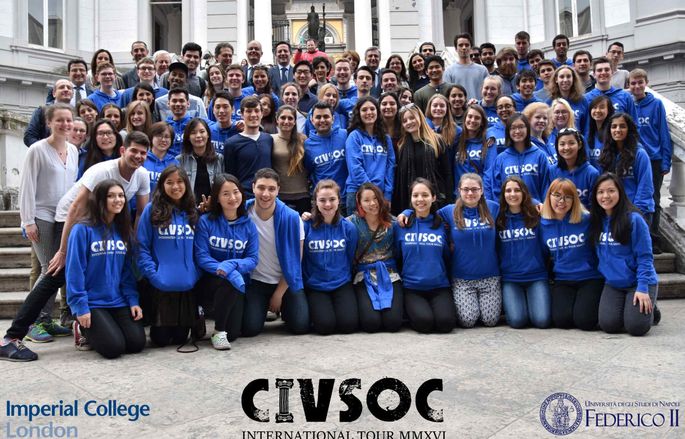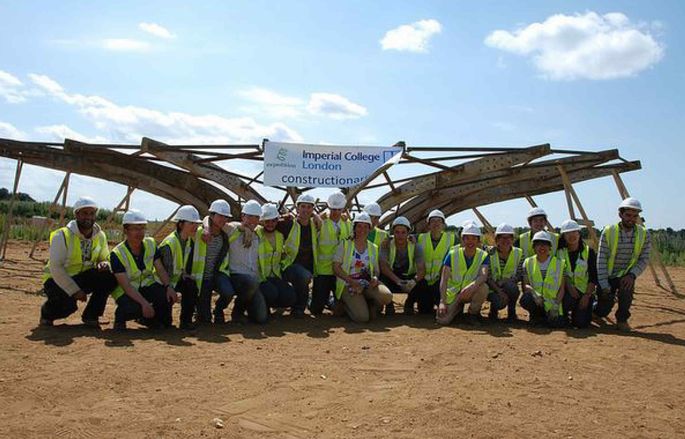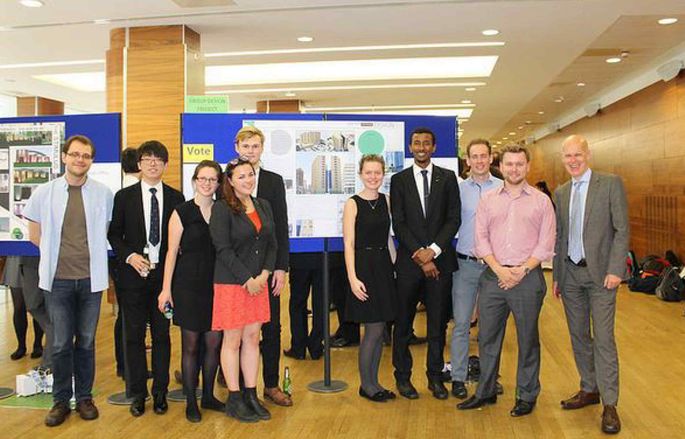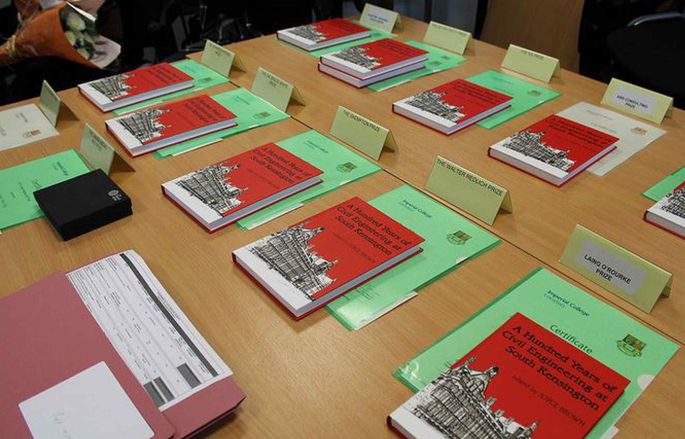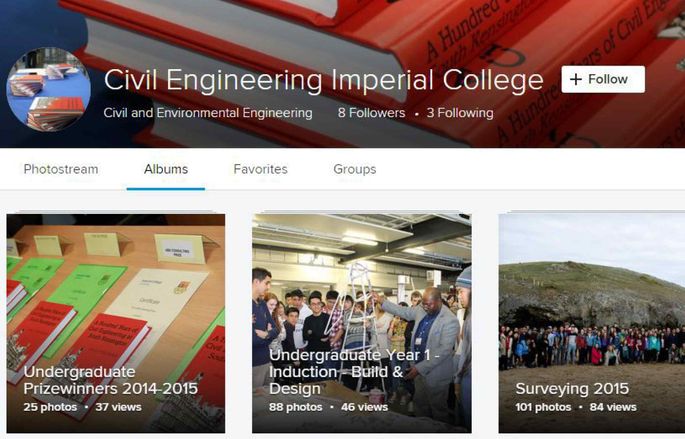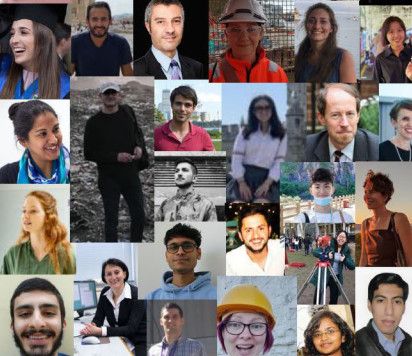Civil Engineering is a broad discipline that covers many aspects of our everyday lives. From the provision of safe drinking water to the design of transport systems, and the development of structures that can withstand earthquakes, Civil Engineers have the ability to improve the quality of life for many people, and indeed save lives. Civil Engineers aim to build in a sustainable way whilst protecting the natural environment. We offer two MEng courses:
- H201 Civil Engineering (MEng), 4 years
- H202 Civil Engineering with a Year Abroad (MEng), 4 years
Students registered for the year abroad programme will take the relevant language course for credit in years I II and III. Find out more about the year abroad programme.
Why study Civil and Environmental Engineering?
MEng Programme Information
Years one and two offer a broad education in the theoretical principles and conceptual fundamentals that underpin the Civil Engineering profession. An opportunity to develop specialist knowledge of a particular field is available in the third and fourth years of the programme through our elective modules and the final year, individual, research based project. View the full syllabus.
Civil Engineering offers the opportunity for careers in a number of areas, some of which you may not yet have considered, these range from
- working in a consultancy or design office
- working with contractors
- other branches of engineering
- voluntary work sector
- further education (MSc, PhD)
A large proportion of our students stay in the engineering sector.
What do civil engineering graduates go on to do?
- Civil Engineering - graphs [pdf]
- Civil Engineering - text-only tables and employment/further study destinations [pdf]
What help is available?
Throughout your studies you will have access to one-to-one advice and guidance clinics, interview practice, and recruitment events.
Becoming a member of a Professional Institution
What are Professional Institutions?
- The Professional Institutions, Bodies and International Associations are non-profitable organisations that strive to promote and progress subject areas (such as civil, structural, environmental engineering).
- They are centres for the exchange of specialist knowledge, and a provider of resources to encourage innovation and excellence in the profession worldwide.
- The Professional Bodies (not the International Associations) award professional qualifications that are usually recognised worldwide.
- We strongly encourage students to become student members of the relevant Professional Institutions. To this end, we have a dedicated Liaison team in the Department who arrange for the Institutions to come in and speak with students.
Imperial College works closely with employers and industry, to design undergraduate courses which provide graduates with the required technical knowledge, expertise and transferable skills for successful careers. In Civil Engineering , students gain valuable contact with the industry through visiting lectures, field trips, the Constructionarium, our creative design course, as well as their group and individual projects. Students are also encouraged to pursue internships during their summer vacation. All our undergraduate programmes are accredited by the Institution of Civil Engineers and the Institution of Structural Engineers and so, together with suitable work experience obtained after graduation, provide a route to the professional qualification of Chartered Engineer (CEng). Graduates also gain the Associateship of the City & Guilds Institute (ACGI), an internationally-recognised qualification unique to Imperial Engineering Graduates.
MEng Application information
- Minimum academic entry requirements
- The application process and fees
- Further information resources for this course
Please refer to the Entry Requirements tab on the College Prospectus Page.
Applications are accepted via UCAS. Please see the How to Apply pages for more information.
Please refer to the College's pages on fees and funding.
| Type | Document |
|---|---|
| Document to download | Undergraduate Student Handbook 2018/19 |
| Webpage | Syllabus and modules |
| Document to download | Programme Specifications |
| Document to download | Competence Standards |
| Webpage | Imperial College Terms and Conditions |
| Webpages | The Higher Education Funding Council for England (HEFCE), introduced Key Information Sets (KIS) which are designed to be directly comparable sets of information about all full and part-time undergraduate courses in all English Universities. They are designed to meet the information needs of prospective students trying to compare different courses from different Institutions. For more information visit the Unistats website. KIS data for our undergraduate courses can be found on the prospectus entries, see H201 and H202. |
| Resources for this module | |
Why choose us?
National Student Survey
- Overall Satisfaction, 90.2 (2022), 89.9 (2021); 78.1 (2020); 88% (2019)
QS World Universities rankings
- Subject Ranking. Civil Engineering = 6th (2022); 6th (2021); 5th (2020); 6th (2019)
- Overall, Imperial was voted 7th best university in the world in the 2022 rankings.
Guardian University Guide (UK)
- Subject Ranking. Engineering: Civil = 3rd (2022); 4th (2021); 1st (2020); 1st (2019)
- Overall, Imperial was ranked 7th in this year's Guardian university guide.
The Times Higher Education world ranking
- Subject Ranking. Engineering and Technology = 14th (2021); 11th (2020); 12th (2019)
- Overall, Imperial was ranked 11th best university in this year's rankings.
The Sunday Times Good University Guide (UK)
- Subject Ranking. Civil Engineering = 1st (2022); 4th (2021); 4th (2020); 3rd (2019); 1st (2018)
Complete University Guide
- Subject Ranking. Civil Engineering = 2nd (2023), 8th (2022); 7th (2021); 6th (2020); 2nd (2019); 1st (2018)
- Overall, Imperial ranked 5th best university in this year's rankings.
- REF 2021. 75% of our research was considered 4* (highest rating), and the remaining 25% at 3* (unit of assessment: engineering).
- REF 2014. 47% of our research assessed to be 4* (highest rating), 48% assessed to be 3* and 5% assessed as 2* (unit of assessment: civil and construction engineering).
- RAE 2008. 40% of our research assessed to be 4* (highest rating), 55% assessed to be 3* and 3% assessed as 2* (unit of assessment: civil engineering).
Hear from one of our formaer students as she blogged about her time with us
Discover civil engineering: What’s your story?
Take a magical journey through our modern world built and designed by civil engineers, with a few surprises along the way. Find out what civil engineers do and how they’ve shaped our world.
Video courtesy of the Institution of Civil Engineers.
Our community in numbers*
Our academics
- 55 full-time academic staff
- 42 part-time, honorary and visiting
- 90+ research staff
- 40+ Professional Services and Technical staff
Our student population
- 226 PhD students
69% male; 31% female
42 nationalities - 292 MSc students
58% male; 42% female
42 nationalities - 456 Undergraduates
42 nationalities
* all numbers are approximate
Contact the Undergraduate Office
Telephone:
+44 (0)20 7594 6045 / 6002 / 5965
Email:ciugo@imperial.ac.uk
Civil and Environmental Engineering
Skempton Building
Imperial College London
South Kensington Campus
London, SW7 2AZ
We are located in the Skempton Building (building number 27 on this map) | How to find us
Measures of success
Research Assessment Exercise
- REF 2021. 75% of research assessed to be 4* (highest rating), 25% assessed to be 3*.
QS World Universities rankings
- Subject Ranking. Civil Engineering = 6th (2021); 6th (2020); 6th (2019); 3rd (2018)
The Times Higher Education world ranking
- Subject Ranking. Civil Engineering = 4th (2021); 11th (2020); 12th (2019)
National Student Survey
- Overall Satisfaction, 92% (2022), 90% (2021); 78% (2020); 88% (2019)

